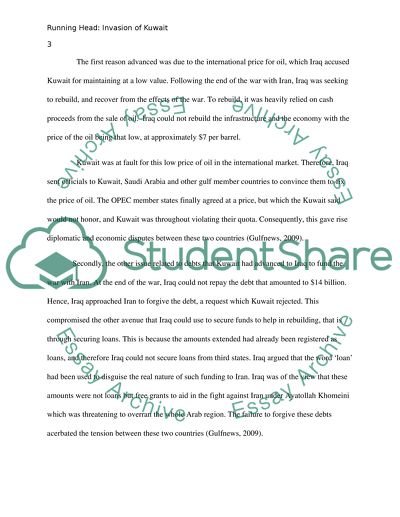Cite this document
(“The Invasion of Kuwait in 1990 Essay Example | Topics and Well Written Essays - 1250 words”, n.d.)
Retrieved from https://studentshare.org/history/1476224-the-invasion-of-kuwait-in-1990
Retrieved from https://studentshare.org/history/1476224-the-invasion-of-kuwait-in-1990
(The Invasion of Kuwait in 1990 Essay Example | Topics and Well Written Essays - 1250 Words)
https://studentshare.org/history/1476224-the-invasion-of-kuwait-in-1990.
https://studentshare.org/history/1476224-the-invasion-of-kuwait-in-1990.
“The Invasion of Kuwait in 1990 Essay Example | Topics and Well Written Essays - 1250 Words”, n.d. https://studentshare.org/history/1476224-the-invasion-of-kuwait-in-1990.


